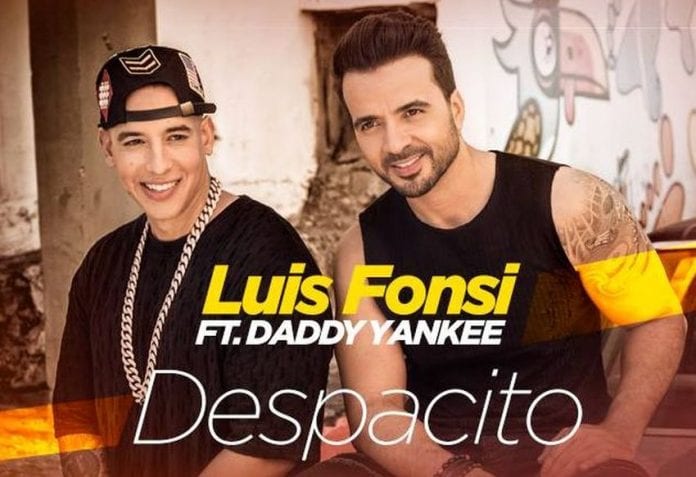If there is one song that we can single out as the most popular one at the moment and the one that has marked this summer, it is, without a doubt, Luis Fonsi and Daddy Yankee’s “Despacito,” right? Not only was it streamed over 4.6 billion times on YouTube, but it is number one on Billboard’s Hot 100 list.
Luis Fonsi, the songwriter, expressed how happy he is to know that such a popular song is in Spanish. “The whole world is singing in Spanish! We have everybody Googling, ‘What does Despacito mean?” Fonsi shared his feelings with us. The song was released in January this year. Even though the reception was great right away, some people believe that Justin Bieber’s cover helped it become number one in the United States.
Needless to say, Luis Fonsi is not the first Latin artist who has achieved such a great success, but unlike others who did so singing in English, Fonsi made “the whole world sing in Spanish.” When asked about this, he said: “’Despacito’ was just the song that exploded through the door. But I give a lot of credit to amazing artists who have done these kinds of fusions in the past, like Ricky [Martin], Enrique [Iglesias] and Shakira.”
Believe it or not, “Despacito” has become the most streamed song in history, which made it even more popular. “Before, you cannot see how the market was working because of the piracy. On the charts, you only saw the official sales. Now you can see all the consumption of the music on the charts,” Jesus Lopez, CEO of Universal Music Latin Entertainment, explained this phenomenon.
With the growing success of the song, many people started talking about its cross-cultural significance, as well. Rocio Guerrero, Spotify’s Head of Latin Culture, says: “I think ‘Despacito’ creates, even more, a buzz about something that was already happening. This is something that didn’t happen overnight — we’ve been working really hard for many years to push the Latin culture to the forefront of the music business.”
As previously mentioned, Luis Fonsi could not help but point out how proud he is that the song is in Spanish, but he also explained why this is quite important if look at the big picture: “The timing is quite perfect, you know, in this environment we live in,” he says. “I don’t want to turn this song into a political environment because it’s not. It’s a great song to make us feel good. But in the times that we live, where some people want to divide and want to build walls — we’re going through a lot of change, so it’s quite lovely that a Spanish song is No. 1 right now.”
Furthermore, the song’s genre is also important to mention, as reggaeton “has endured a lot of attempts to get rid of it.” Petra Rivera-Rideau, assistant professor of American Studies at Wellesley College (the author of “Remixing Reggaeton: The Cultural Politics of Race in Puerto Rico”) explains how reggaeton was born and what made it unpopular: “The communities that were associated with [reggaeton] culture were also communities that were stigmatized by the Puerto Rican government. They were targets of anti-crime initiatives in the mid-1990s that represented [them] as chaotic, perpetrators of violence, tied to drugs and all kinds of stereotypes. So reggaeton became a cultural symbol of these establishments. They were looking at reggaeton as emblematic of all the ills and problems of this community,” Rivera-Rideau says. So, the song’s genre is just one more thing that makes “Despacito” not only catchy and great to dance to, but important for the already growing popularity of reggaeton.
Finally, Isabella Herrera, music editor of the online Latino culture website Remezcla, explained that “Despacito” did draw media’s attention to Latinos, but that it will take so much more to draw attention to the major issues their community is still facing in the US. “We continue to tell ourselves these feel-good stories about representing Latinos in music and culture because we are so starved for visibility,” she says. “And we use these pop culture moments to celebrate these remarkable feats of how far we’ve come. But I don’t think it changes the political situation of Latinos in the United States,” Herrera concluded.









